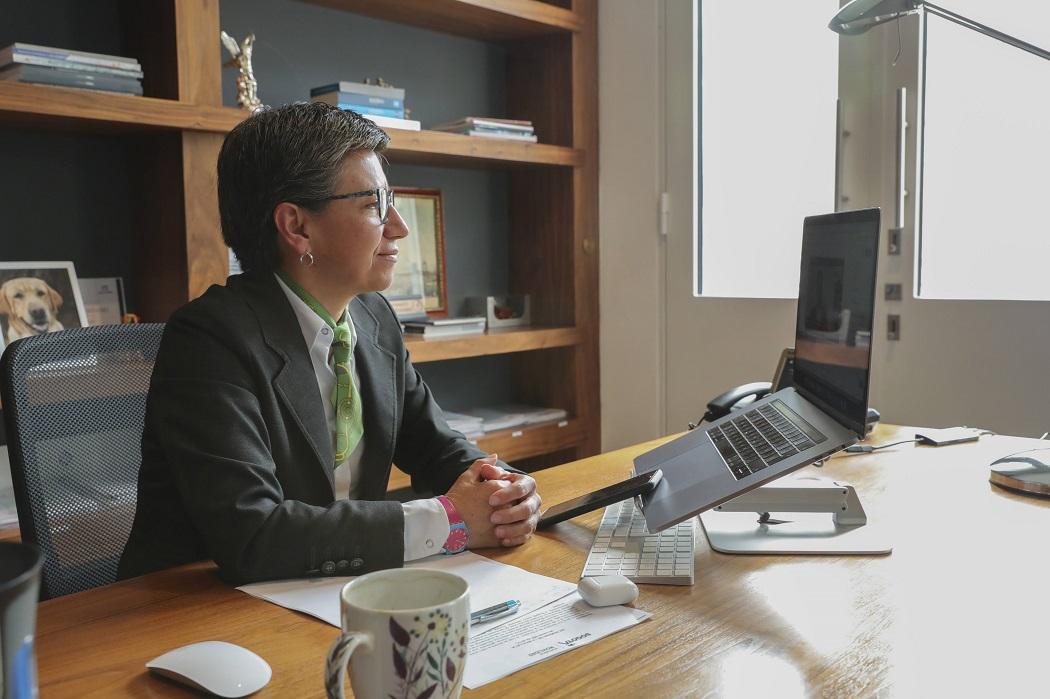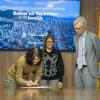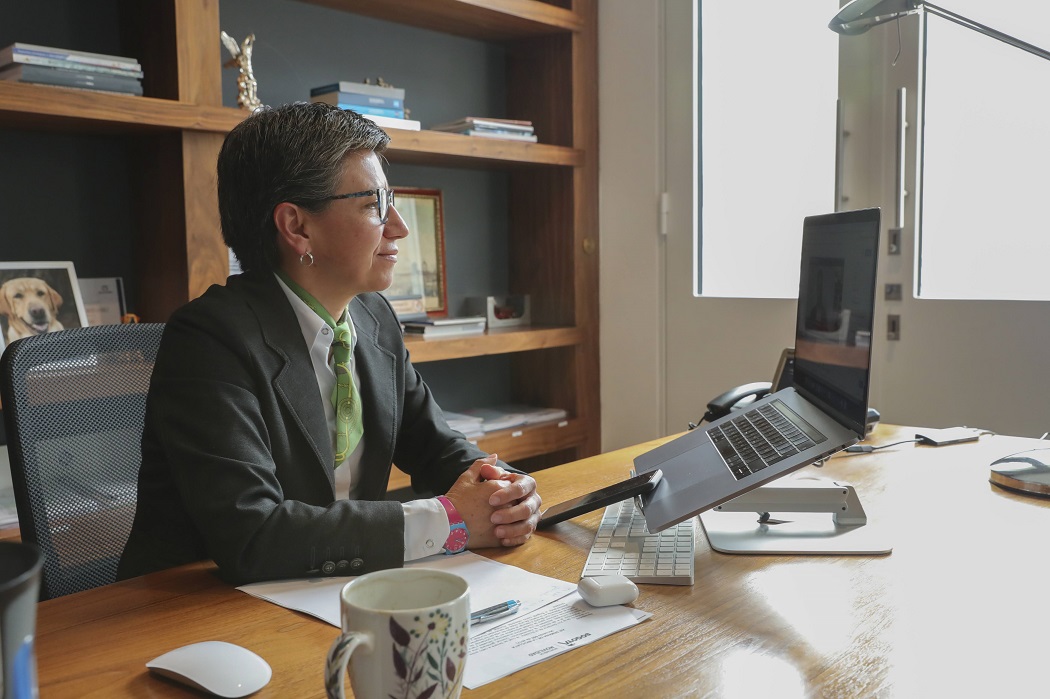As part of the activities of the Bicycle Week, the mayor of Bogotá, Claudia López and the mayor of Guayaquil, Cynthia Viteri, led the panel 'The certainty of moving differently: The bike as an opportunity for change', where they shared their experiences on how sustainable mobility has been assumed in times of pandemic.
"This year brought us very difficult times, but also great challenges and opportunities, one of the greatest is learning how to move and work differently," said the mayor of Bogotá, Claudia López.
She stressed that the pandemic has brought to the Colombian capital a great bet through its new Territorial Ordering Plan (POT), which consists about changing the grid in the way the city was built, where the priority will be pedestrians and cyclists through green corridors, where the city's road space is redistributed in an equitable way.
It is important to remember that the number of bicycle trips have doubled this year. “Before the pandemic the number of bicycle trips in the city was 6.6%, today it is 13%. In seven months we doubled the number of bicycle trips in Bogotá ”, stated Mayor Claudia López in this panel.
“Vehicles represent only 15%, but they occupy 85% of the road space. That is why we took the task of making 84 kilometers of new bike lanes this year in order to begin the redistribution that the city requires, ”said the Bogota’s major.
Likewise, she showed the experience of the bicycle lane of the Seventh street, one of the most emblematic roads of the city, which before the pandemic registered fewer than 100 trips between streets 39 and 100, and today with the implementation of the bicycle lane this number went up to more than 800.
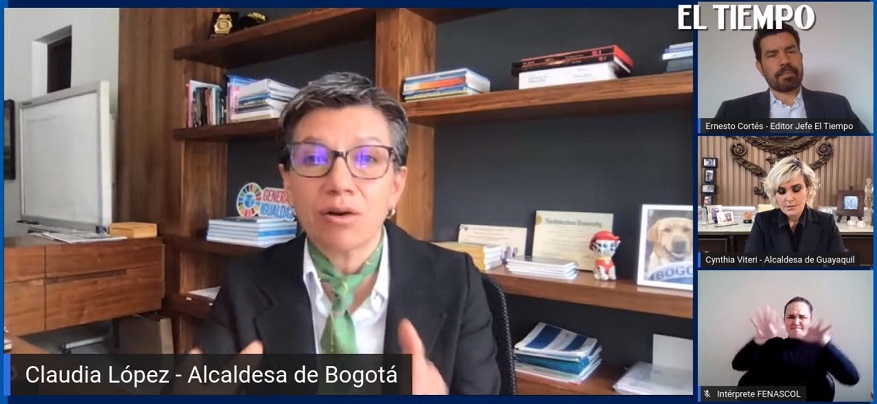
She also recalled that in the next four years Bogotá will invest one billion pesos for infrastructure for pedestrians and cyclists.
In addition to this, there is implementation of 280 kilometers of new bike paths in the four-year period and the maintenance of 200 km to increasingly improve the conditions of cyclists on the roads.
"Our experience tells us that what has allowed a greater number of trips by bicycle, is the marking and separating bicycle lanes, but above all, the success is about connecting the trips that are made in the city," said López.
On her side the mayor of Guayaquil, Cynthia Viteri, pointed out that the Ecuadorian city has undergone enormous changes this year such as the arrival of bike paths.
"In Guayaquil 70% of the trips are made in public service, that is why we started a a campaign to promote the use of the bike; with the implementation of 37 kilometers of bike paths, the bet is to reach 120 interconnected kilometers throughout the city" Cynthia Viteri said.
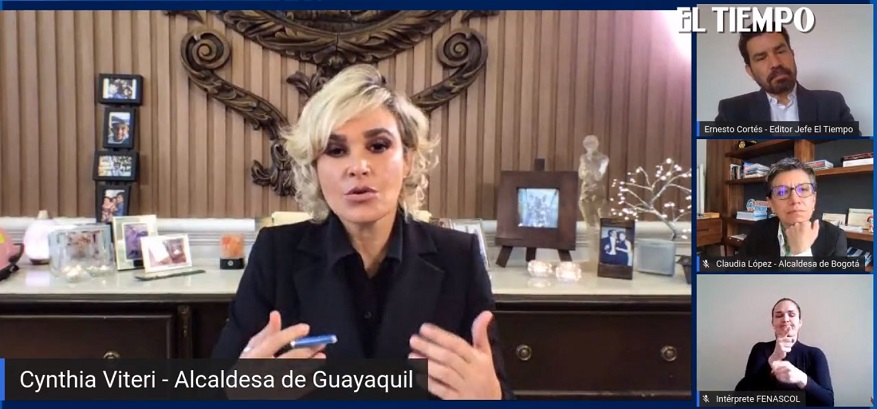
In addition, she asked Mayor Claudia López to share the results of the experiences “Ciempiés” and “To the School in bike” so she could replicate this model Guayaquil.
The mayors of these two South American cities agreed on the importance of creating mini-cities or green districts that allow their inhabitants to avoid making long trips to work, study or live.
The Mayor of Bogotá stated that another challenge of the pandemic is to achieve a change in citizenship habits that helps combat climate change and protect the environment.
Also more security conditions for cyclists on the streets are needed (since, as well as bicycle trips, theft has also doubled and its main reason for that is because there are no bicycle parking spaces to park them).
Regarding the 24-hour cities, the Mayor of Guayaquil said that this should be the commitment of large cities like these two, to contribute to the economic reactivation. The leaders of Guayaquil and Bogotá closed their interventions indicating how cities imagine themselves after the pandemic.
“We have to change our lifestyle, use less car and use more bicycles and feet. They are things that are not worth much but that can help us to have a much better city, ”said the Mayor of Bogotá.
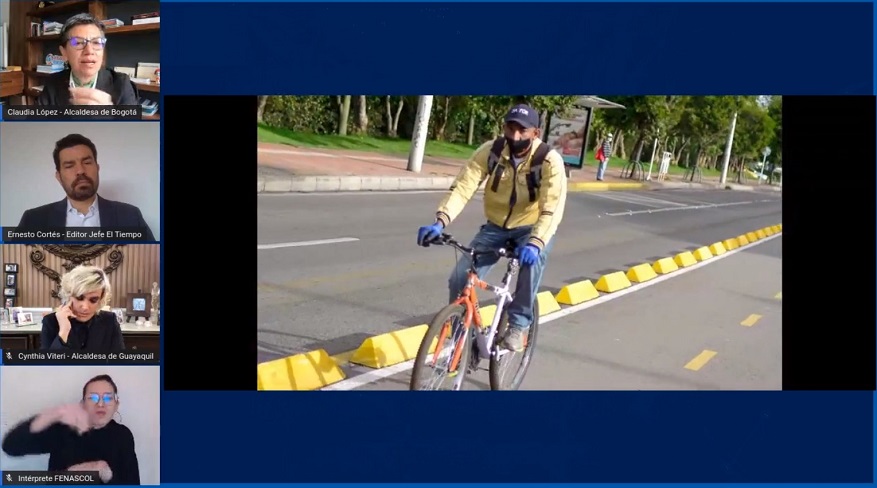
In her turn, the Mayor of Guayaquil pointed out that cities after the pandemic have to learn to be more real and more human, with a culture of love and respect for all forms of life.
